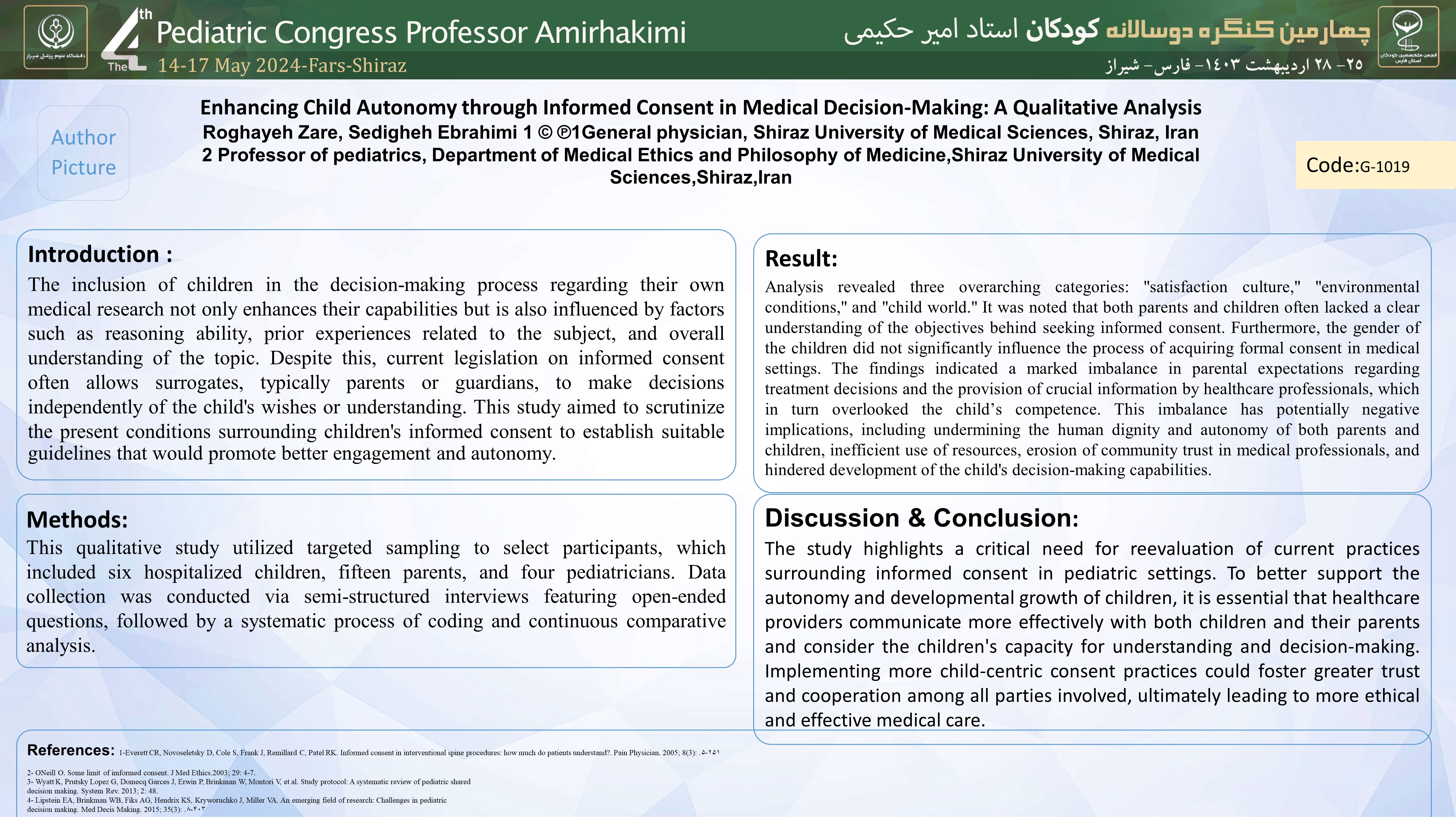افزایش استقلال کودک از طریق رضایت آگاهانه در تصمیم گیری پزشکی: یک تحلیل کیفی
کد: G-1019
نویسندگان: Roghayeh Zare, Sedigheh Ebrahimi © ℗
زمان بندی: زمان بندی نشده!
دانلود: دانلود پوستر
خلاصه مقاله:
خلاصه مقاله
Background: The inclusion of children in the decision-making process regarding their own medical research not only enhances their capabilities but is also influenced by factors such as reasoning ability, prior experiences related to the subject, and overall understanding of the topic. Despite this, current legislation on informed consent often allows surrogates, typically parents or guardians, to make decisions independently of the child's wishes or understanding. This study aimed to scrutinize the present conditions surrounding children's informed consent to establish suitable guidelines that would promote better engagement and autonomy. Methodology: This qualitative study utilized targeted sampling to select participants, which included six hospitalized children, fifteen parents, and four pediatricians. Data collection was conducted via semi-structured interviews featuring open-ended questions, followed by a systematic process of coding and continuous comparative analysis. Results: Analysis revealed three overarching categories: "satisfaction culture," "environmental conditions," and "child world." It was noted that both parents and children often lacked a clear understanding of the objectives behind seeking informed consent. Furthermore, the gender of the children did not significantly influence the process of acquiring formal consent in medical settings. The findings indicated a marked imbalance in parental expectations regarding treatment decisions and the provision of crucial information by healthcare professionals, which in turn overlooked the child’s competence. This imbalance has potentially negative implications, including undermining the human dignity and autonomy of both parents and children, inefficient use of resources, erosion of community trust in medical professionals, and hindered development of the child's decision-making capabilities. Conclusion: The study highlights a critical need for reevaluation of current practices surrounding informed consent in pediatric settings. To better support the autonomy and developmental growth of children, it is essential that healthcare providers communicate more effectively with both children and their parents and consider the children's capacity for understanding and decision-making. Implementing more child-centric consent practices could foster greater trust and cooperation among all parties involved, ultimately leading to more ethical and effective medical care. Keywords: Autonomy, Informed Consent, Child, Qualitative Study
